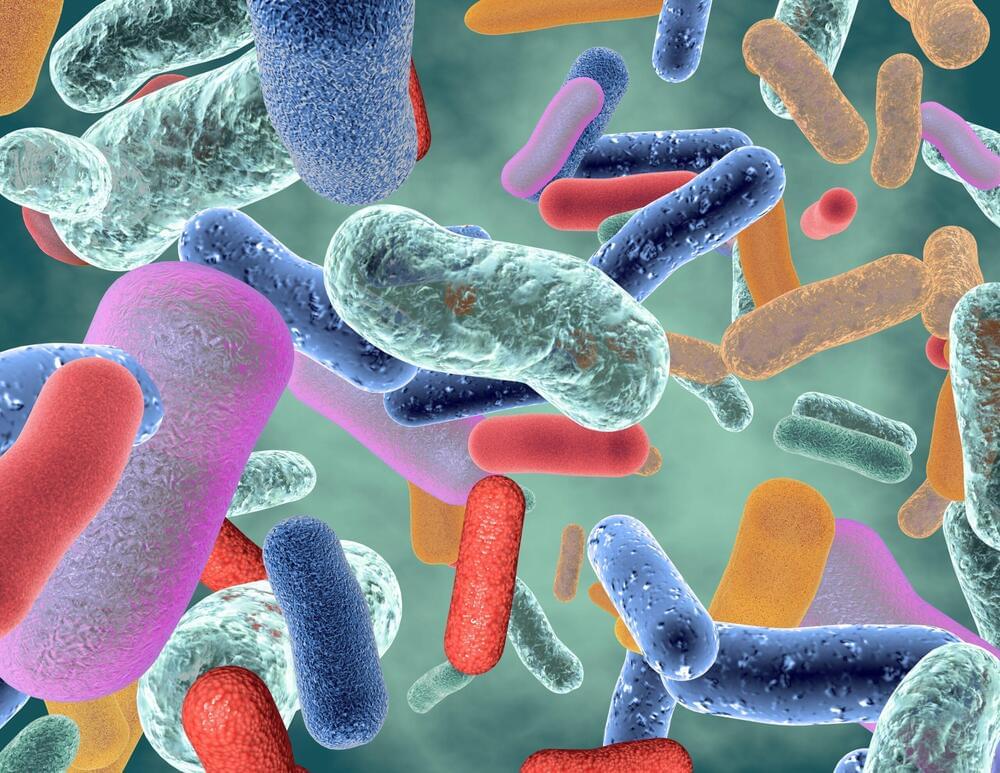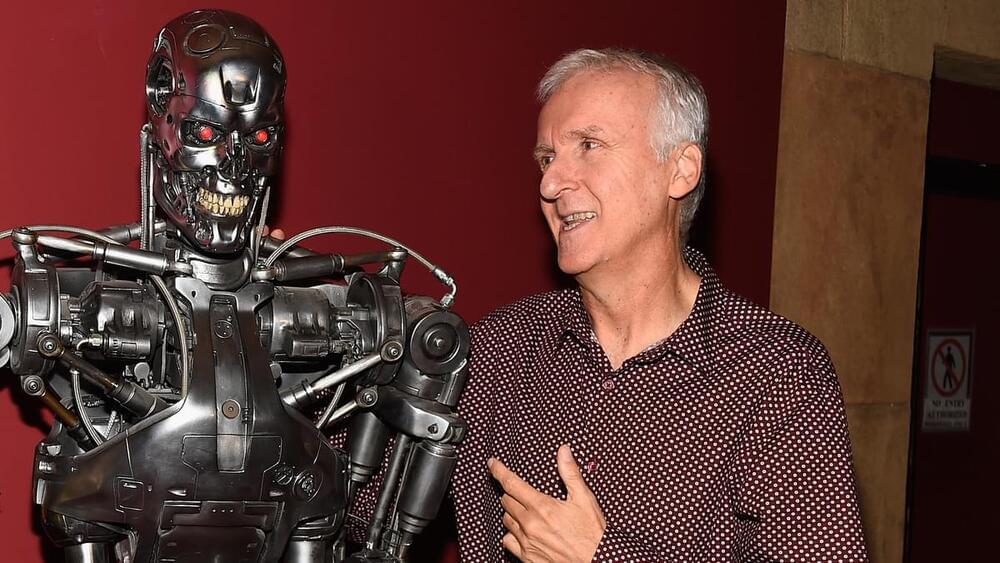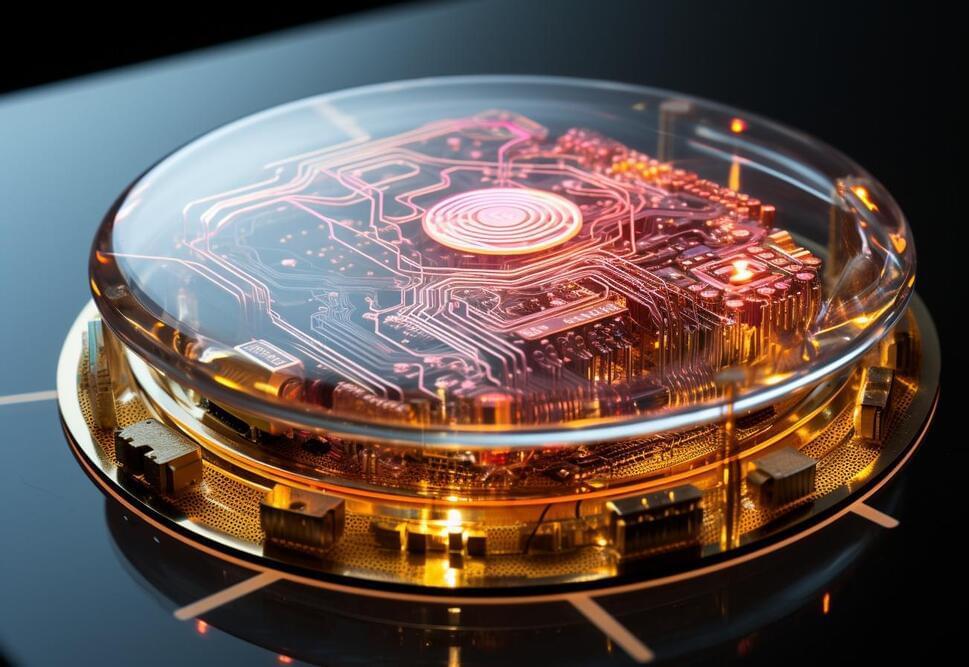Page 2945
Jul 21, 2023
Amazon to launch pay-by-palm technology at all Whole Foods stores by year-end
Posted by Kelvin Dafiaghor in category: food
Amazon One lets users enter and pay for items in stores by swiping their hand over a kiosk.
Jul 21, 2023
Apple stock pops on report it’s developing its own equivalent of ChatGPT
Posted by Kelvin Dafiaghor in category: futurism
The move signals Apple is taking recent advances in the technology seriously and is considering integrating them into future products.
Jul 21, 2023
SoundStorm: Google Unveils Terrifying AI Tool Capable of Real-Time Voice Replication
Posted by Kelvin Dafiaghor in category: robotics/AI
Google has introduced SoundStorm, a cutting-edge model for efficient and non-autoregressive audio generation.
It employs bidirectional attention and confidence-based parallel decoding to generate high-quality audio while significantly reducing generation time.
It also has the ability to synthesize natural dialogues.
Jul 21, 2023
Hardship Is Reflected in the Gut Microbiome Across Generations
Posted by Arthur Brown in category: biotech/medical
Adversity experienced by mothers during their childhood or pregnancy is reflected in their children’s gut microbiomes, a recent study found.
Jul 21, 2023
Scientists get a new view of digestion
Posted by Shubham Ghosh Roy in categories: bioengineering, biotech/medical, neuroscience
Our gut microorganisms, collectively known as the gut microbiota, affect far more than digestion. Bacteria in our intestinal tracts influence brain activity — and even the likelihood of developing mental disorders. Decades of research have shown that a bacterially imbalanced gut can disrupt many systems in the human body, contributing to obesity, malnutrition and even cancer. In a study published May 10 in Nature, Stanford Medicine researchers and collaborators used an ingestible device to capture the diversity of microorganisms, viruses, proteins and bile in the small intestine.
The proof-of-concept results provide early evidence that there are more comprehensive ways to measure microbiota in the digestive system than current sampling methods — which mostly focus on stool — and shed new light on how resident gut microbes might contribute to human physiology and disease.
“This paper demonstrates a big leap forward in microbial detection and captures the living gut microbiota in a nutshell,” said co-senior author KC Huang, PhD, a professor of bioengineering and of microbiology and immunology, co-senior author with David Relman, MD, a professor of medicine and of microbiology and immunology. “Samples from current tools don’t fully represent what’s going on inside of us. But it’s all we’ve had — until now.”
Jul 21, 2023
Avoiding The Dangers Of Generative AI: How Marketers Can Use Emotional Intelligence To Gain Impact
Posted by Shubham Ghosh Roy in categories: business, ethics, robotics/AI
Data captured and fed into an AI model should be used to shape and inform marketing programs for the betterment of the customer’s experience. Such a practice enables marketers to utilize valuable information but doesn’t put data privacy at risk. Humans maintain control and can add their own handprint to AI-generated content to develop something much more meaningful that resonates with targeted audiences. Within that construct, marketers must bring the heart and the emotional intelligence to generative AI if they want to maximize its potential while maintaining ethical boundaries.
Human-connected generative AI is poised to be the ultimate tool if used responsibly. It can recognize patterns and insights and develop recommendations for actions, effectively making workers smarter and better at their jobs.
Most businesses see generative AI’s capabilities as opportunities to do more with less. Now it’s time to take the next step forward, connecting data insights with personalized content to ethically move through the pipeline at a new level of speed and efficiency—and in a manner that’s rewarding and enriching for customers.
Jul 21, 2023
Can Massages Promote Longevity? The Surprising Truth About the Ancient Practice
Posted by Shubham Ghosh Roy in category: life extension
Some best practices for longevity can be a real bummer. Everyone knows that regular exercise is good for them, but not everyone enjoys it. Eating a few cups of veggies with every meal may not be as fun as a side of fries.
But every so often, the things that are good for us feel good too. Case in point: the humble massage.
A massage for most people is a spa-day splurge, but it’s also an ancient medicinal practice. A thorough rub-down is a great way to celebrate the end of a stressful semester, but there’s more to it than much-deserved relaxation. At its best, a good massage improves bodily motion and function. While science doesn’t say that each massage adds years to your life (not yet, anyway), the benefits of regular massages (for those lucky enough to get them) can add up over time.
Jul 21, 2023
James Cameron Is More Worried About an AI Apocalypse Than an AI Movie Script for Now
Posted by Kelvin Dafiaghor in categories: media & arts, military, robotics/AI
We’re not at the scope of usage Cameron is anxious about yet, but we don’t have to imagine what AI’s role in the military could look like hypothetically—it’s already starting to happen. The U.S. Department of Defense is already investigating moves to create an archive of military data to use as part of what it sees as an escalating digital arms race with other nations, and the eventual weaponization of such technology. Not that Cameron himself hasn’t already thought about that extensively in his own filmmaking career already, of course.
“I warned you guys in 1984 and you didn’t listen,” the director not-so-jokingly added. But you know, hopefully we get protections for actors, writers, directors, and other creatives against generative AI replacements before we have to worry too much about someone making Skynet. Hopefully.
Jul 21, 2023
Computer chip with built-in human brain tissue gets military funding
Posted by Joseph Barney in categories: biological, computing, military, neuroscience
I gotta admit although effective and innovative, it’s also kinda creepy.
Last year, Monash University scientists created the “DishBrain” – a semi-biological computer chip with some 800,000 human and mouse brain cells lab-grown into its electrodes. Demonstrating something like sentience, it learned to play Pong within five minutes.
The micro-electrode array at the heart of the DishBrain was capable both of reading activity in the brain cells, and stimulating them with electrical signals, so the research team set up a version of Pong where the brain cells were fed a moving electrical stimulus to represent which side of the “screen” the ball was on, and how far away from the paddle it was. They allowed the brain cells to act on the paddle, moving it left and right.
Continue reading “Computer chip with built-in human brain tissue gets military funding” »

















